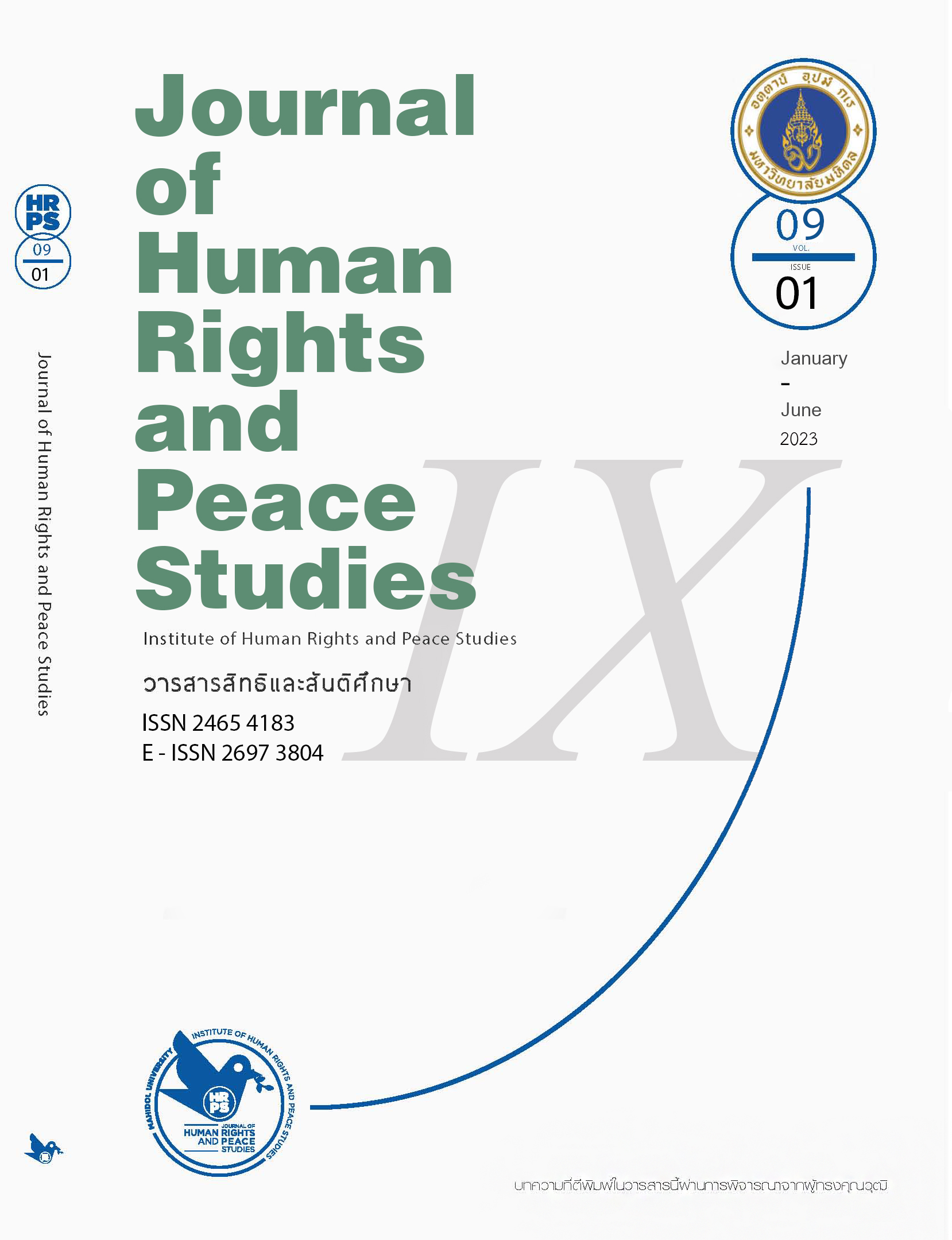Sustainable Development Goals (SDGs): The Contribution of Islamic Ethics to Solving the Environmental Crisis
Main Article Content
Abstract
The article argues that the concept of human nature influenced by Aristotle's
idea of humans as social animals has deprived humans of their spiritual
significance. As the modern world, marked by the Industrial Revolution, took
up this idea, it lowered the status of human beings to merely a factor in the
process of industrial production. The modern world's view of planet Earth is
that its very existence is to serve the unlimited consumption of human beings.
These ideas about the nature of human beings and planet Earth have given
rise to the current unprecedented level of destruction of the environment. It
is argued that Islamic environment ethics, for example, the concepts of
human beings as Amanah holders (trustees) and Khalifah (God’s vicegerents
on the Earth); among others, have established an ethical backbone for the
protection and preservation of the environment. It is argued that by drawing
on Islamic ethics, the common ground on which all Muslim countries agree,
the Muslim world can contribute enormously to achieving the Sustainable
Development Goals (SDGs) within the ethical framework set by the UN.
Article Details

This work is licensed under a Creative Commons Attribution-NonCommercial-NoDerivatives 4.0 International License.
The views, opinions, and pictures expressed in this journal are those of the authors and do not necessarily reflect the opinions and viewpoints of the editor and the editorial board. All rights are reserved by the authors and the Institute of Human Rights and Peace Studies of Mahidol University. No part of this journal may be reproduced, stored in a retrieval system, or transmitted in any form or by any means without the prior permission in writing from the journal’s editor, or as expressly permitted by law, or under terms agreed with the appropriate reprographics rights organization. Non-commercial use of information in this journal must be properly referenced.
References
Bakar, O. (2016) Understanding the challenge of global warming in the light of the quranic idea of earth as our only planetary home. In I. Yusuf (Ed.), A planetary and global ethics for climate change and sustainable energy (pp. 117-141). Konrad-Adenauer- Stiftung.
Bhikkhuni, V. S. (2016). Mobilizing People of Faith in the People’s Climate Movement – Calling for Ethical Business and Government, Decisive Action on Climate and Decentralized Clean Energy. In I. Yusuf (Ed.), A planetary and global ethics for climate change and sustainable energy (pp. 64-78). Konrad-Adenauer- Stiftung.
Dien, M. I. (2003). Islam and the environment: Theory and practice. In R. C. Foltz (Ed.), Islam and ecology: A bestowed trust (pp. 107-120Harvard Divinity School.
Foltz, R. (2016). The environmental crisis and global violence: A matter of misplaced values. In I. Yusuf (Ed.), A planetary and global ethics for climate change and sustainable energy (pp. 21-35). Konrad-Adenauer- Stiftung.
Hallaq, W. B. (2013). The impossible state: Islam, politics, and modernity’s moral predicament. Columbia University Press.
Lin, M. M., & Hidayat, R. (2018, August 18). Jakarta, the fastest-sinking city in the world. BBC. https://www.bbc.com/news/world-asia-44636934#
Özdemir, I. (2003). Toward an Understanding of Environmental Ethics from a Quranic Perspective. in R. C. Foltz, (ed.) Islam and Ecology: A bestowed Trust. Cambridge: Center of the Study of World Religions, Harvard Divinity School. p.5, 14.
Quran (The Arab Universities Alumni Association, Trans.). (2020). The Center of King Fahad for the Quran.
Sardar, Z. (2011). Reading the Quran: The contemporary relevance of the sacred text of Islam. Hurst & Co., Oxford University Press.
The Intergovernmental Panel on Climate Change (IPCC). AR6 synthesis report: Climate change 2023. https://www.ipcc.ch/report/sixth-assessment-report-cycle/
Vohra, A. (2021). The middle east is becoming literally uninhabitable. https://foreignpolicy.com/2021/08/24/the-middle-east-is-becoming-literally-uninhabitable
Voice Online. (2021, August 15). Yīpun tư̄an phai fon radap sūngsut næ ʻopphayop dūan kư̄ap sō̜ng lā nakha na [Japanese authority issues highest level of warning due to imminent flood, suggesting evacuation of 2 million of its residents]. https://www.voicetv.co.th/read/1qRn481iU?fbclid


